10 Tips for Writing Tender Responses That Actually Win Contracts
Winning tenders isn’t magic, it’s method. If you’re tired of losing bids and want to boost your success rate, this guide has exactly what you need. Learn key tender writing strategies to improve your contract win rate.
Here are 10 powerful strategies you can use right now to craft tender responses that evaluators love. Mastering these tender tips can significantly enhance your bid success.
1. Know Your Tender Specification Inside-Out
Skim-reading won’t cut it. Dive deep into the tender docs, and make sure you understand exactly what the client wants. Address every requirement clearly and directly, or risk being overlooked. Thorough understanding of tender specifications is fundamental for a winning bid.
2. Break Down Every Question
Don’t tackle tender questions in one overwhelming chunk. Instead, break them into bite-sized pieces. Answer every component clearly to ensure nothing slips through the cracks. Employ a structured approach to answering tender questions for clarity.
3. Ask Questions, Early
Unclear requirements? Ask questions immediately. It’s better to clear confusion upfront than to guess and miss the mark later. Proactive clarification ensures accurate tender responses.
4. Write Like You’re Selling (Because You Are)
Tender writing isn’t paperwork, it’s persuasion. Highlight exactly how your service solves the client’s problems and improves their business. Sell the benefits, not just features. Effective tender persuasion techniques are key to winning.
5. Answer Completely and Clearly
No fluff. Give clear, detailed answers that directly respond to each question. Be concise but thorough, never leave evaluators guessing. Clarity and completeness are vital in tender answers.
6. Speak Their Language
Drop the jargon. Unless specifically requested, keep your language clear and conversational. Your bid should be so easy to read that anyone, even someone outside your industry, can instantly understand your value. Use clear and accessible language in your tender writing.
7. Make Your Document Easy to Navigate
Confused evaluators don’t award contracts. Structure your response with clear headings, numbered answers, and intuitive navigation. Make it simple for the reader to find exactly what they’re looking for. Ensure easy tender document navigation for evaluators.
8. Provide Proof That Can’t Be Ignored
Claims alone don’t win contracts. Back up everything you say with real, concrete evidence, use compelling case studies, verified statistics, factual reports, and client testimonials. Strong evidence in tender responses builds credibility.
9. Proofread Like Your Contract Depends On It
Nothing undermines professionalism like errors. Have fresh eyes review your tender to catch typos, confusing wording, or any inconsistencies. Meticulous tender proofreading is essential for a professional image.
10. Present Like a Pro
Presentation matters, a lot. Your document should look clean, consistent, and professional. A polished presentation shows evaluators you care about details and quality. Professional tender presentation leaves a positive impression.
Wrapping Up
Tender writing is strategic storytelling. Master these tips, write with clarity, and consistently demonstrate your value. You won’t just write better tenders, you’ll start winning more contracts. Implement these tender response strategies to increase your win rate.
